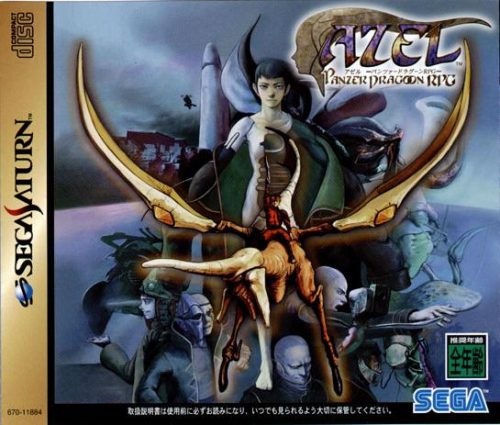Just about nearly a year ago, we uploaded an Editorial Tuesday as to How Emulation Helps and Hurts the Industry. In regards to that Editorial Tuesday, we talked about how emulation can help gamers who can’t find older/rare games and yet the ROMs are available (for free) on the internet for them to enjoy. Though we aren’t exactly trying to promote piracy, even Nintendo has admitted that piracy/emulation can help preserve games despite their hardened stance against it. However, Mike Mika, a veteran programmer and game preserver has emphasized that with some original copies of games now forever lost but with the ROMs still around, there is hope in keeping certain games alive for generations. So, how does emulating/pirating further benefit the industry?
Game Preservation
If there is one thing our previous Editorial Tuesday neglected to mention it would be that the ultimate benefit to emulation/piracy is game preservation. This originates to the argument as to whether or not video games can be recognized as art. As a result to how the industry and its fans didn’t perceive games as art until the 90s, some companies didn’t really bother archiving their games (which we’ll get into). There are interested parties such as the Game Preservation Society and The Video Game History Foundation who see that by having some copy of a game, regardless if it’s pirated or not, it can be used for preservation and for future study in the same way that we study older literature, film, and music in our present day education (and even that was a hard fought battle).
Yes, Nintendo, through its modern systems, do sell their own ROMs, but when you take into account that there are 700+ games that were released for the original NES, Nintendo only released 1/10 of that library online! A lot of gamers feel that every game matters and through emulation, we can preserve the remaining 9/10.
Does Emulation Really Hurt Sales?
The most reasonable concern in regards to piracy/emulation is that it hurts sales. Emulators themselves aren’t illegal thanks to the US Ninth District Court of Appeals ruling that they were protected under fair use, but copying and distributing ROM files is illegal. With some ROM sites profiteering through ads, anyone can understand why Nintendo would shut down sites that distribute ROMs. According to a 2010 survey by the Business Software Alliance, piracy costs the industry half a hundred billion US dollars and 500,000 jobs. We’re not here to dispute these results but a 2014-2015 European Commission that did their own study suggested that it actually increased sales. Their studies showed that for every 100 games downloaded illegally, players legally purchase another 24!
Throughout this study of piracy, it just wasn’t limited to games but to other industries such as movies, books, and music. The study found piracy had a negative effect on books and movies, and no effect on music. However, games had a more productive effect. The survey stated that some pirated games out on the net may be incomplete/imperfect (so think of it as an unofficial demo?) and it inspires prospective players to go out and buy the full thing if they want to enjoy it. Of course, this study is limited to EU nations and we can’t conclude this speaks to the world as a whole.
It Keeps Certain Consoles Alive
In extension to game preservation, piracy/emulation has kept some consoles (the actual console, not an emulator of the console) alive. Yes, it ultimately helps retro gaming, but piracy has unexpectedly helped keep the Dreamcast console going to this day. Thanks to the MIL-CD format which paved the way for piracy, it ironically has kept this cult system alive. Since a lot of the present day development software for games can be applied to the Dreamcast, it has inspired independent developers and home brew makers to re-release games such as Flashback through that console (though the developers had to get the rights to Flashback).
Final Thoughts

To repeat ourselves, not every retro game is going to get re-released through a game company’s official online service. One major reason is that some companies don’t even archive or preserve their own games from their past! Sega, with a good majority of their early arcade games, is very notorious for this, and most of their earliest titles are forever lost! This is also tragically seen with their cult Saturn hit, Panzer Dragoon RPG. So, why has Panzer Dragoon RPG not yet seen a re-release? It is because Sega lost the original source code! They even lost the original Sonic source code as well (the Sonic 1 in Sonic Jam was re-made from scratch!)! Japanese companies haven’t come around to seeing this until recently when some of their older PC games such as the MSX are now progressively dying out.
What about GoldenEye, one of the N64’s top hits? Due to the licensing of the James Bond franchise changing between companies, it makes it difficult for Nintendo to legally distribute it. As for some other games, their original developers/publishers went out of business and their rights are in legal limbo. One day, not every remaining NES, Genesis, Apple II or Commodore 64 are going to function anymore. Furthermore, disc based games are going to die out due to disc rot and the only way to help preserve them for the future is through emulation!
We understand it’s a complex issue from a legal standpoint. Though gaming has been around for nearly 40 years, we have to understand that it’s still young compared to film and music. The argument of whether or not games are art is still ongoing, but if we want to prove that, we need to keep a record of what existed throughout history and with the formats of previous generations dying, emulation will have to be its final salvation!
Recommended Post

